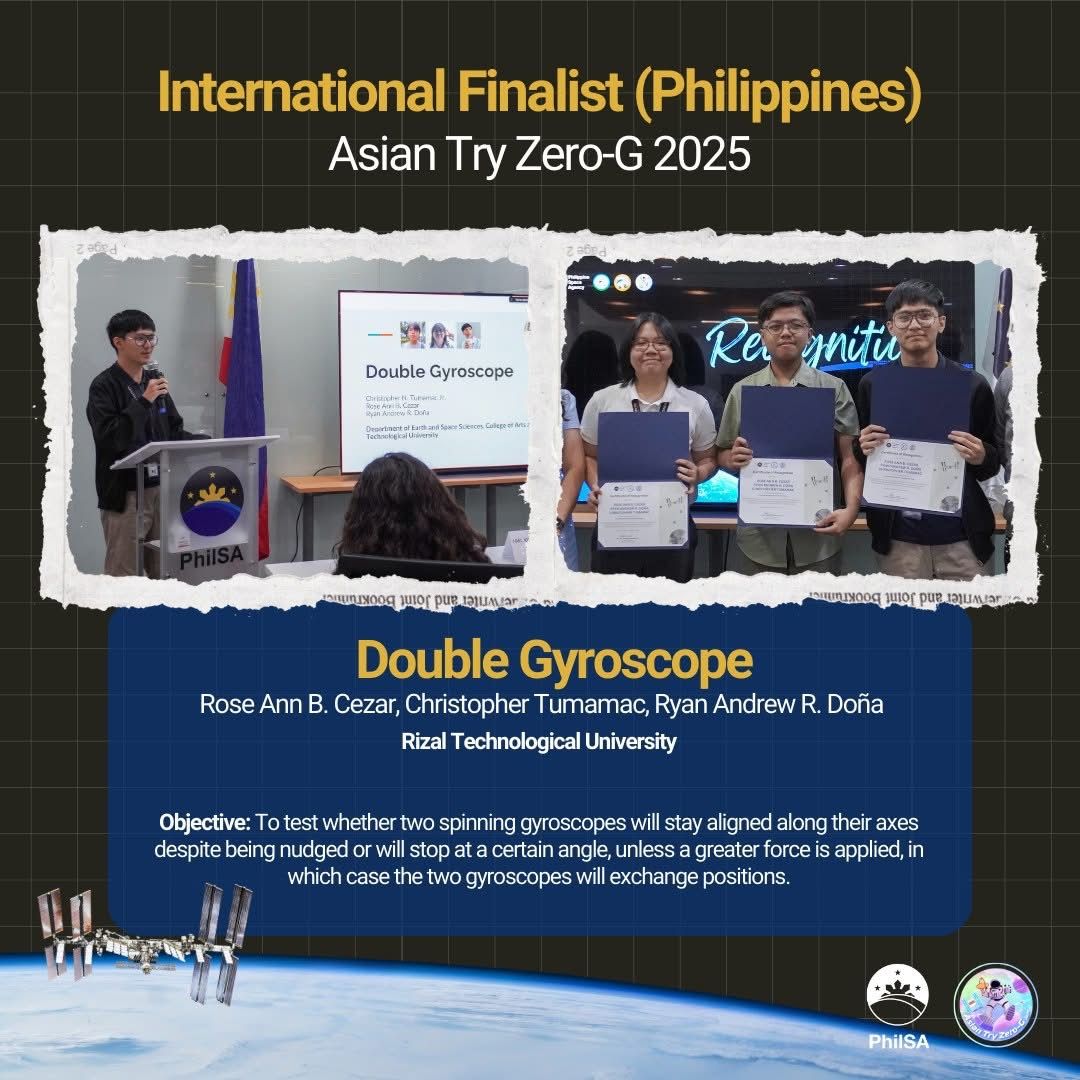Filipino youth experiment to be conducted aboard the ISS for Asian Try Zero-G 2025

The Philippines has officially joined the prestigious Asian Try Zero-G (ATZG) 2025, with a Filipino youth experiment selected for execution aboard the International Space Station (ISS), as announced by the Philippine Space Agency (PhilSA).
PhilSA said the experiment titled “Double Gyroscope,” which was chosen by Japan Aerospace Exploration Agency (JAXA) to be conducted aboard the ISS, was developed by Rose Ann B. Cezar, Ryan Andrew R. Doña, and Christopher Tumamac from Rizal Technological University (RTU).
It is one of 11 finalists selected from a pool of 500 proposals submitted by 1,176 applicants from nine countries and regions under the Kibo-ABC initiative.
This year's competition saw 89 submissions from the Philippines, which has consistently earned a spot as an ATZG finalist since 2018.
The "Double Gyroscope" experiment will test whether two spinning gyroscopes maintain alignment along their axes, even when nudged or stopped at a certain angle unless acted upon by a greater force.
The ATZG 2025 experiments will be carried out by JAXA astronauts aboard the ISS from the latter half of 2025 through early 2026.
The ATZG initiative, part of the Kibo-ABC (Asia-Pacific Cooperation) program, aims to promote the use of Japan's Kibo module aboard the ISS and encourages youth involvement in space science across the Asia-Pacific region.
The kibo-ABC program involves 20 member-institutions from 14 countries and regions including Australia, Bangladesh, Japan, Malaysia, the Philippines, Singapore, Taiwan, Thailand, and the United Arab Emirates.